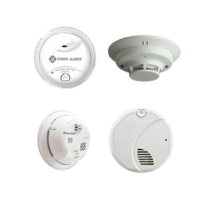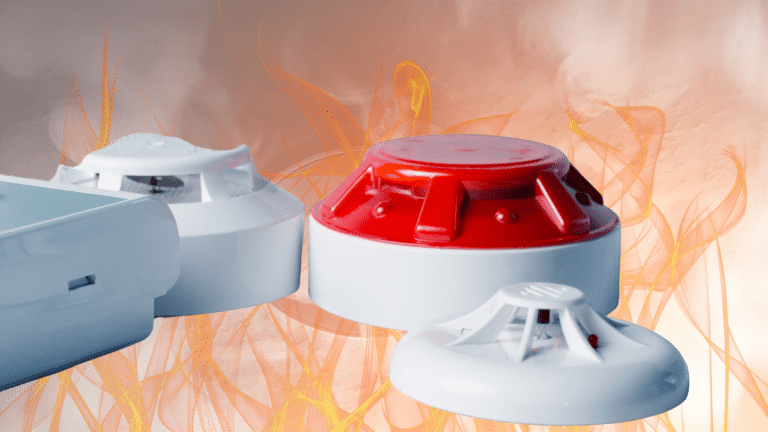Demystifying Alarm Systems: A Comprehensive Guide
An alarm system is an electronic device designed to detect and alert individuals to potential threats or emergencies, such as intrusion, fire, carbon monoxide leaks, or medical emergencies. It serves as a crucial layer of defense by providing early detection and warning, typically through audible alarms, notifications to authorities, or activation of other security measures.
Understanding Alarm Systems
Alarm systems play a pivotal role in ensuring security by providing early detection and warning of potential threats such as intrusion, fire, carbon monoxide leaks, and medical emergencies.
Definition and Functionality: Alarm systems are electronic devices designed to detect and alert individuals to potentially dangerous situations. They serve as a crucial layer of defense against various threats.
Components of Alarm Systems: Typical components include control panels, sensors, alarm devices, and communication devices. These work together to detect and respond to security threats effectively.
How Alarm Systems Work: When a sensor detects an anomaly, the alarm system triggers a response, such as sounding an alarm, notifying authorities, or activating other security measures.
Types of Alarm Systems
Intrusion Detection Alarms: These systems detect unauthorized entry into a building or area and are commonly used in residential and commercial settings.
Fire Alarms: Designed to detect the presence of fire, smoke, or excessive heat, fire alarms are critical for early fire detection and evacuation.
Carbon Monoxide Alarms: These alarms monitor the presence of carbon monoxide, a colorless and odorless gas that can be lethal if undetected.
Medical Alert Alarms: Used primarily by individuals with medical conditions or the elderly, these systems can be activated to request medical assistance in emergencies.
Benefits of Alarm Systems
Enhanced Security: Alarm systems act as a visible deterrent to potential intruders and provide a sense of security for occupants.
Early Warning and Detection: They offer early detection of threats, allowing for prompt action to mitigate potential damage or harm.
Peace of Mind for Homeowners and Businesses: Knowing that a reliable alarm system is in place provides peace of mind, especially when away from home or the workplace.
Choosing the Right Alarm System
Assessing Security Needs: Understanding specific security requirements is crucial in selecting an alarm system tailored to individual needs.
Understanding Different Alarm System Features: From basic intrusion detection to advanced smart home integration, alarm systems offer a range of features catering to diverse security needs.
Factors to Consider When Selecting an Alarm System: Considerations such as budget, property size, and desired features are pivotal in making an informed decision.
Installation and Maintenance
Professional vs. DIY Installation: While some may opt for do-it-yourself installation, professional installation ensures proper setup and integration, maximizing the system’s effectiveness.
Common Installation Practices: Proper placement of sensors, control panel installation, and integration with other security measures are key aspects of installation.
Importance of Regular Maintenance and Testing: Regular maintenance and testing are essential to ensure the system functions optimally when needed.
Integration with Smart Home Technology
How Alarm Systems Can Integrate with Smart Home Devices: Integration with smart home technology allows for remote monitoring, automation, and enhanced control over security systems.
Advantages of Smart Home Integration: Smart home integration offers convenience, energy efficiency, and the ability to customize security settings.
Considerations for Implementing Smart Home Security Solutions: Understanding the compatibility of alarm systems with smart home devices and ensuring proper setup and security measures are crucial.
Alarm System Regulations and Compliance
Overview of Regulatory Standards: Various regulatory standards govern the design, installation, and operation of alarm systems to ensure their effectiveness and reliability.
Compliance Requirements for Different Types of Alarm Systems: Different types of alarm systems have specific compliance requirements to adhere to industry standards and regulations.
Importance of Compliance for Homeowners and Businesses: Compliance ensures that alarm systems are installed and operated in a manner that maximizes their effectiveness and minimizes false alarms.
Alarm System Myths and Misconceptions
Debunking Common Myths About Alarm Systems: Addressing misconceptions about the effectiveness and practicality of alarm systems is essential in making informed decisions.
Addressing Concerns About False Alarms: Educating users about false alarms and measures to prevent them can help in fostering trust in alarm systems.
Clarifying the Role of Alarm Systems in Security: Highlighting the role of alarm systems as part of a comprehensive security strategy can dispel doubts and misconceptions.
By understanding the types, benefits, selection criteria, installation, regulations, and addressing myths, readers are equipped to make informed decisions about alarm systems. In today’s world, where security is paramount, investing in a quality alarm system is crucial for safeguarding lives and property. The blog concludes by encouraging readers to prioritize their security needs and invest in quality alarm systems to ensure enhanced safety and security for their homes and businesses.
FREQUENTLY ASKED QUESTION
Are there regulations or standards for alarm systems?
Yes, there are various regulations and standards governing the design, installation, and operation of alarm systems to ensure their effectiveness, reliability, and compliance with industry standards and local regulations.
Do alarm systems require professional installation?
While some alarm systems can be installed by homeowners as do-it-yourself projects, others may require professional installation to ensure proper setup, configuration, and integration with other systems.
Can alarm systems be integrated with other security systems?
Yes, alarm systems can be integrated with other security systems, such as surveillance cameras, access control systems, and smart home devices, to create a comprehensive security solution tailored to your needs.
How do I choose the right alarm system for my needs?
When selecting an alarm system, consider factors such as the specific security threats you want to address, the size and layout of your property, your budget, and any desired features such as remote monitoring or smart home integration.
What are the benefits of alarm systems?
Alarm systems provide enhanced security by deterring intruders, detecting threats early, and alerting authorities or individuals to potential emergencies. They also offer peace of mind for homeowners and businesses, knowing that their properties are monitored and protected.
Where are alarm systems commonly used?
Alarm systems are commonly used in residential homes, commercial buildings, industrial facilities, and vehicles to enhance security, safety, and peace of mind for occupants.
What are the types of alarm systems?
Alarm systems can be categorized based on the type of threat they detect, including intrusion detection alarms, fire alarms, carbon monoxide alarms, and medical alert alarms.
What are the components of an alarm system?
Typical components of an alarm system include control panels, sensors (such as motion detectors, door/window contacts, smoke detectors), alarm devices (such as sirens or strobe lights), communication devices (such as telephone dialers or cellular transmitters), and power sources (such as batteries or electrical outlets).
How does an alarm system work?
Alarm systems work by utilizing sensors to detect abnormal conditions or activities, such as motion, heat, smoke, or hazardous gases. When a sensor is triggered, the alarm system activates audible alarms, sends notifications to authorities or designated individuals, or triggers other security measures to mitigate the threat.


